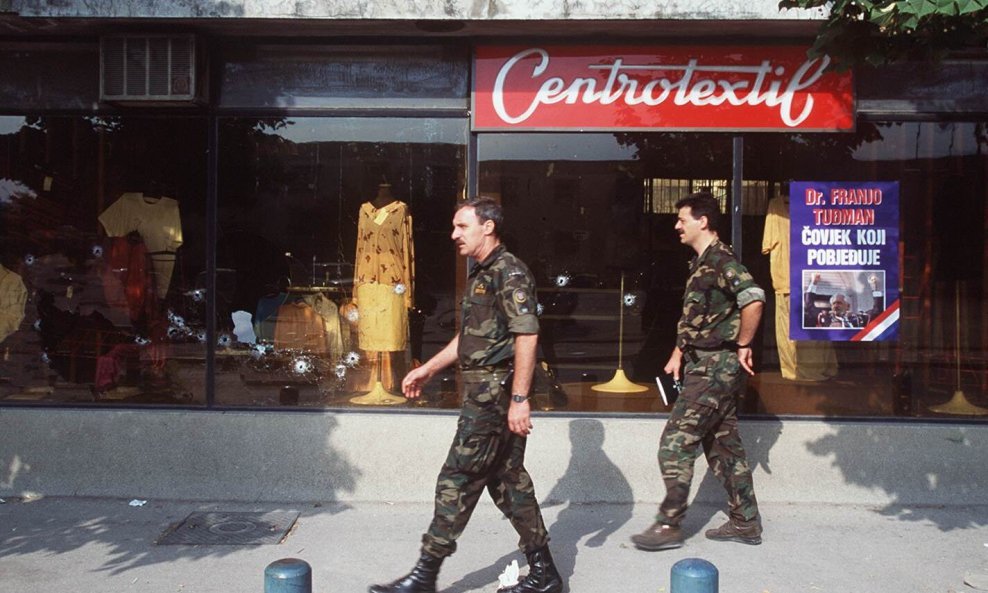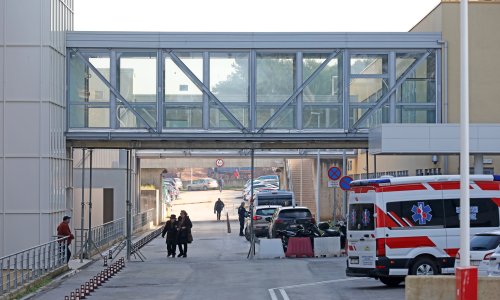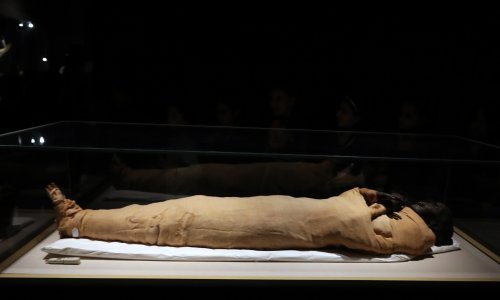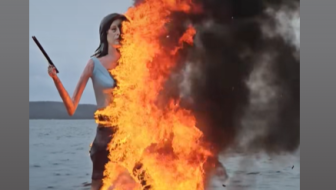A total of 3,728 known perpetrators have been prosecuted for crimes committed during and in the wake of the 1995 Croatian army and police operation "Storm" and 2,380 have been convicted, according to an extensive report the Office of the Chief State Prosecutor (DORH) made public on its web site on Tuesday evening.
In the course of 1995, and mostly in its second half, DORH received a large number of reports concerning crimes committed during and shortly after Operation Storm. Most of those reports referred to crimes against property and security (arson) and murders, and, to a smaller degree, to war crimes, says DORH.
A total of 6,390 reports were filed against known and unknown perpetrators, including 439 members of the armed forces, in connection with that time period. Charges were pressed against 4,128 known perpetrators and charges against 400 of them were dropped. A total of 3,728 known perpetrators were found and prosecuted, including 395 who at the time were members of the Croatian army. A total of 2,380 persons were convicted.
Local prosecutors' officers still have 2,262 pending cases for crimes whose perpetrators have not been identified. That figure includes charges for 24 war crimes whose perpetrators have not been identified. As regards these cases, relevant authorities have been requested to take steps to identify the perpetrators. As regards the most serious crimes, 33 people have been reported for murder, and murder charges have also been pressed against 34 unidentified perpetrators. As for the 24 war crimes whose perpetrators have not been identified, three criminal reports have been filed against 10 people.
In the part of the report on investigations aimed at establishing the number of victims during and after Operation Storm, DORH says that one is often not making a distinction between victims of war and victims of murder, that is, victims of war crimes. Since DORH's data differ from those in the media and in statements of individuals, DORH is trying to establish, based on available data, how many of the victims are victims of criminal acts.
According to data available to DORH, the registered number of victims of war crimes and murders during and in the wake of Operation Storm is as follows: A total of 47 people were registered as murdered, and 33 perpetrators were prosecuted for the murder of 21 people, while the perpetrators of the other 26 murders remain unidentified. Ten members of the Croatian army were prosecuted for war crimes committed against 11 people during and in the aftermath of Operation Storm.
Local prosecutors' offices are investigating 24 war crimes committed during and in the wake of Operation Storm in which 156 people were killed. Based on reports filed by the police and research into local prosecutors' records, this amounts to a total of 214 people reported killed, either as murder victims or victims of a war crime.
Citing data from nongovernmental organisations, DORH says that the most complete data were published by the Croatian Helsinki Committee for Human Rights (HHO) in its 2001 report on Operation Storm and the situation after the operation. According to that report, the number of victims is 677. The report does not separate war victims from victims of war crimes. The registered victims are divided into three groups: UN Sector South - 410 people who lost their lives; UN Sector North - 191 people who lost their lives; and 76 people killed or gone missing in a refugee column. DORH has in its records 114 people from the HHO's lists.
DORH also cites in its report data provided by the department for detained and missing persons of the Croatian Ministry of Family Affairs, War Veterans and Inter-Generational Solidarity.
According to those data, 679 people were exhumed, while 563 are still listed missing. DORH notes that the Ministry department does not keep separate records of war victims and victims of war crimes either.
As for the criminal charges pressed in the period starting from 1991, DORH says that war crimes charges were pressed against a large number of people (more than 6,000), some of which were dropped and some of which were moved to registers of criminal acts having to do with armed rebellion. DORH therefore does not have exact data on the number of reports filed against known persons for war crimes. For the sake of illustration, it says that 21,641 people were reported for crimes related to the criminal act of armed rebellion and that criminal proceedings were launched against them, but were later dropped as part of general amnesty.
Concluding its report, DORH says that work on war crimes cases is continuing, both as regards trials and investigations by the police and other state institutions. Work on identifying and pressing charges against unidentified perpetrators continues and will not stop as long as there is the possibility that any of the perpetrators or those who ordered commission of crimes are alive because there is no statute of limitations on war crimes, says DORH.
Since data on the number of people killed during or after Operation Storm that are provided by the media and nongovernmental organisations differ significantly from data available to DORH, DORH has requested local prosecutors' offices to take steps to establish, either through police work or in some other way, the circumstances of the deaths of the people mentioned in individual lists, so that the exact number of murder victims and victims of war crimes is established, DORH says in the report.



































